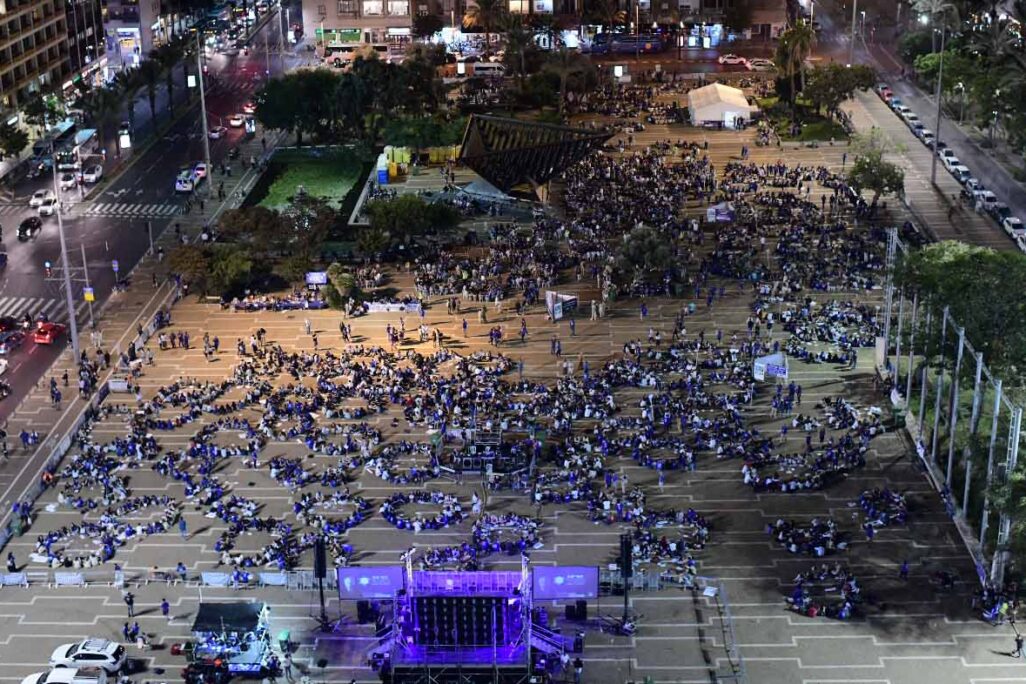
"The greatest lesson that we as a nation have to learn from Prime Minister Rabin's assassination is that we need more dialogue if we want to resolve disputes here in Israel," says Doron, one of the organizers of Israeli Assembly” the event held last Sunday in Tel Aviv to commemorate the 24 years since Prime Minister Rabin's assassination.
"The lack of dialogue as a way of settling our differences leads to political violence, and that’s just what happened here 24 years ago. We want to preserve our fragile democracy, we can't let anything like that happen again," he added.
Many organizations and events are held in Israel to commemorate the legacy and assassination of late Prime Minister Yitzhak Rabin. Among them are municipal events, school activities, a national memorial ceremony held at national cemetery Mount Herzl, and a special session at the Knesset. Standing out among the various events, however, is the Israeli Assembly with its unique emphasis on strengthening democracy through dialogue as a way of commemorating one of the most traumatic events in Israeli history.
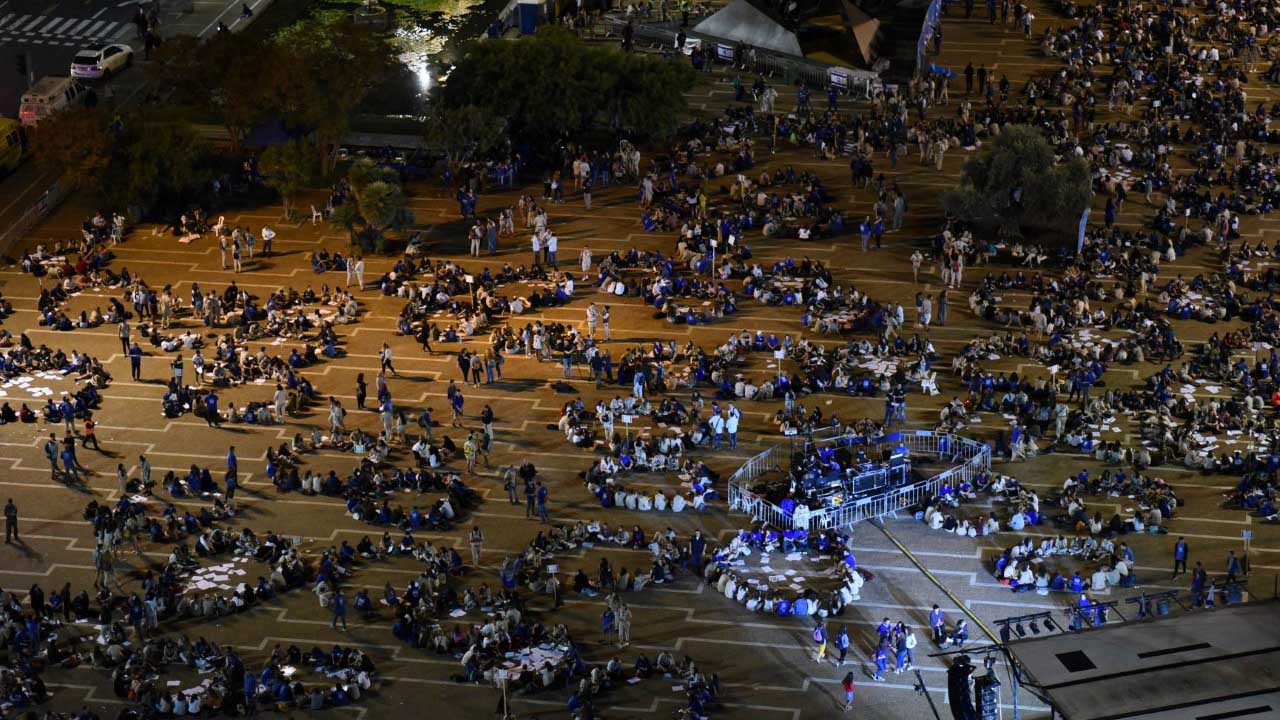
Israeli Assembly’s vision is to bring together groups of people from all sectors and creeds of Israeli society – religious and secular, Arabs and Jews, the right and the left – to engage in dialogue about Israeli society’s most contentious issues in a tolerant and democratic setting. The annual event is set in Rabin Square, named after Prime Minister Rabin, who was assassinated there 24 years ago.
During the event, members of the public come together to speak, listen, engage in dialogue and renew their commitment that the most difficult disputes must be solved democratically, through mutual respect and discussion, not through violence. Participants are invited to round-table discussion groups where key contentious issues are debated and members are encouraged to try proposing solutions to the disagreements.
The event is organized by a coalition of social movements, called Remembering the Murder, Defending Democracy, headed by the Dror Israel movement, in partnership with the Rabin Center and the Jewish National Fund (JNF.) Speeches during the concluding ceremony were made by CEO of Yitzhak Rabin Center, Dalia Rabin, and by Israel Prize winner Miriam Peretz, a bereaved mother of two sons killed in military service and public activist for national unity.
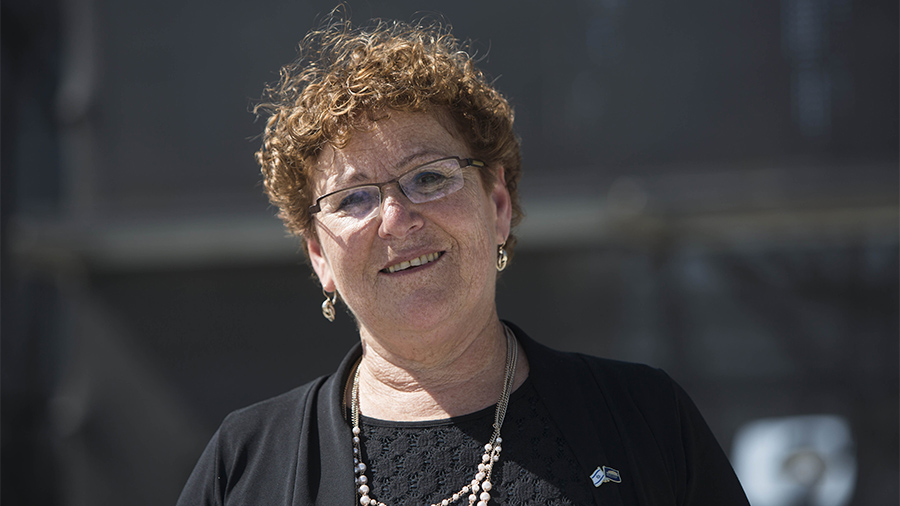
Israel Prize winner Miriam Peretz said in her remarks: "The fragments of the bullets that were fired penetrated and harmed all of us, harmed the human tapestry we created here through arduous labor. This assassination influenced the character of Israeli society, and since it occurred – there has been a gaping chasm. The assassin sought to endanger the very rules of democracy, and with his shots tried to put an end to an opinion which did not suit his own. In this square, he sought to cut off a dream and a hope, and we are here today to say out loud: our hope is not yet lost."
Peretz added: "This place in which blood was shed demands of us to remember and not to forget. To remember that a Jew attacked another Jew, that it happened here, in our home, in our family. And at the same time it demands of us to believe – to believe that we can still mend and build an exemplary society, while this assassination will be part of us forever, like the mark of Cain. A belief that this home belongs to all of us and that we are all going to stay here – religious and nonreligious, left and right, Arabs and Jews, men and women. No one is going to leave."
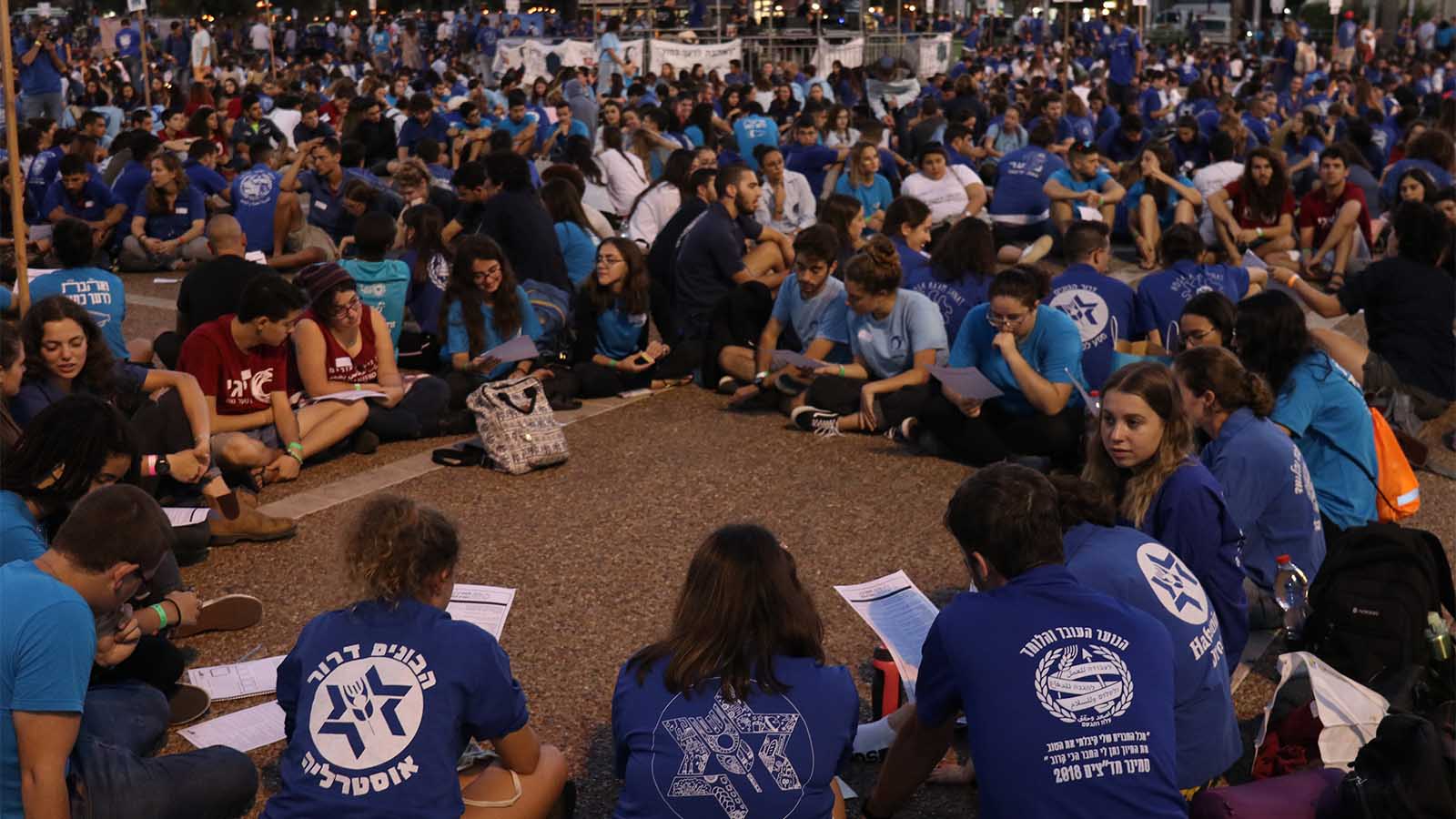
At the event, diverse youth movements who make up the coalition, including religious Bnei Akiva and blue shirts youth movements – who represent the center and left of the political spectrum, congregate and discuss a set of controversial issues in small circles facilitated by their guides. Adults who join the Assembly sit in their own round tables. This year, for the first time, public figures from the media, entertainment personalities, cultural icons and social activists led the adult circles in discussions about the lessons to be learned from Rabin's assassination.
These figures included: Uri Banki, whose daughter Shira was murdered at the Gay Pride Parade in Jerusalem in 2015; Israel Prize winner Adina Bar-Shalom, the daughter of the late Rabbi Ovadiah Yosef and founder of an ultra-Orthodox women's college; journalists who covered the assassination including Ayala Hasson, Jacob Eilon and Gadi Sukenik; Yaron Zilberman, director of the recent film “Incitement” about Rabin’s assassination; Bar Ilan Yeshiva head Rabbi Benny Perl; Hadassah Froman, the widow of the late Rabbi Menachem Froman, a spiritual leader and Orthodox Jew who lived in a settlement and worked towards coexistence; former Shin Bet agent Dvir Kariv who took part in the interrogation of Rabin’s assassin Yigal Amir on the night of the assassination; Haim Assa, Rabin's national security advisor; and the education and coexistence activist Ali Zahalka.
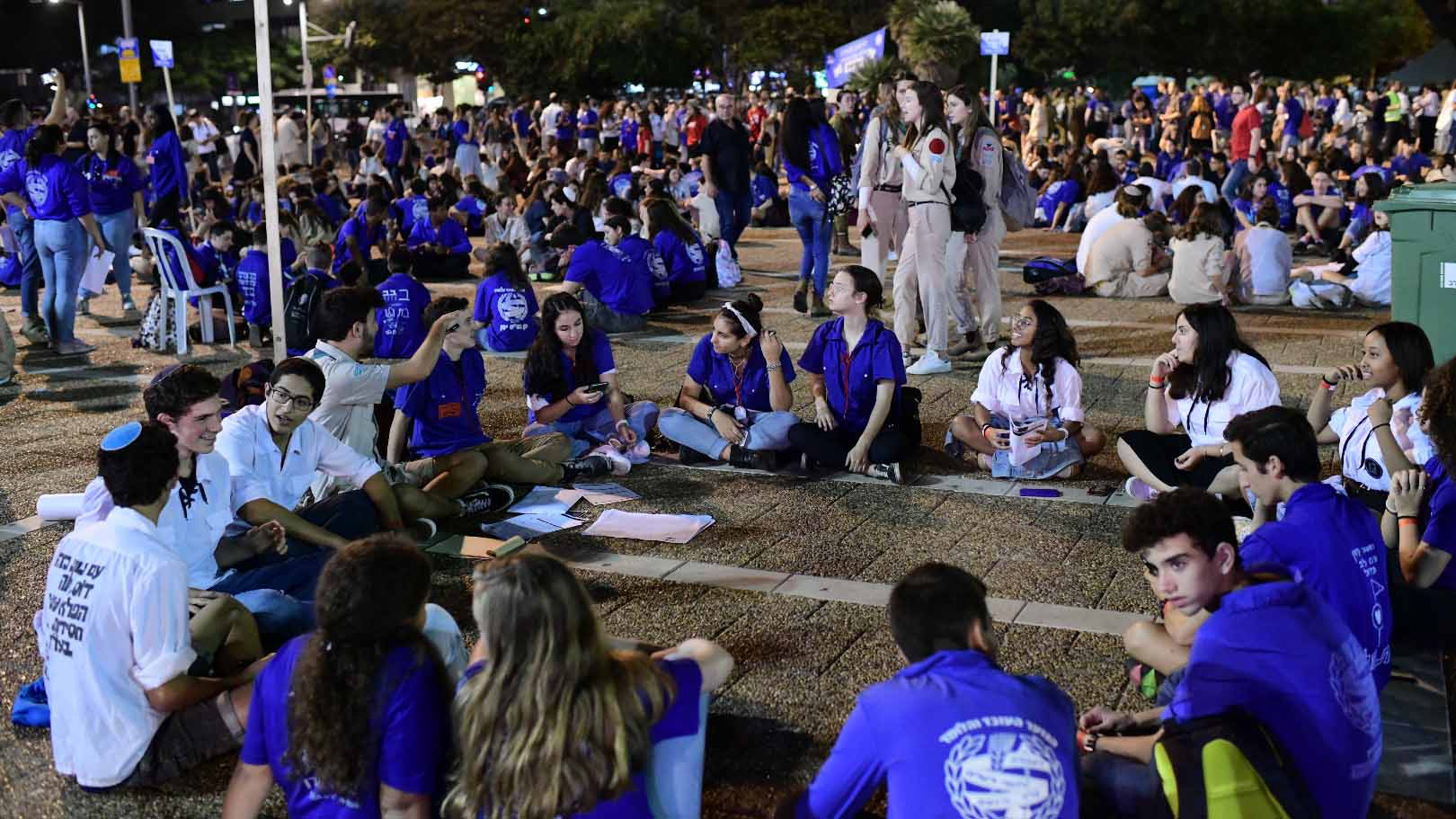
News anchor Jacob Eilon, who broadcasted the Rabin assassination live, echoed Peretz’concerns: "We thought 24 years ago that we had set the record for disagreements and conflicts – nowadays that record is broken on a daily basis. Is it possible that a political murder will occur today? Absolutely possible, unfortunately. How can this situation be changed? Not from above. Only if we learn how to engage in proper dialogue.”
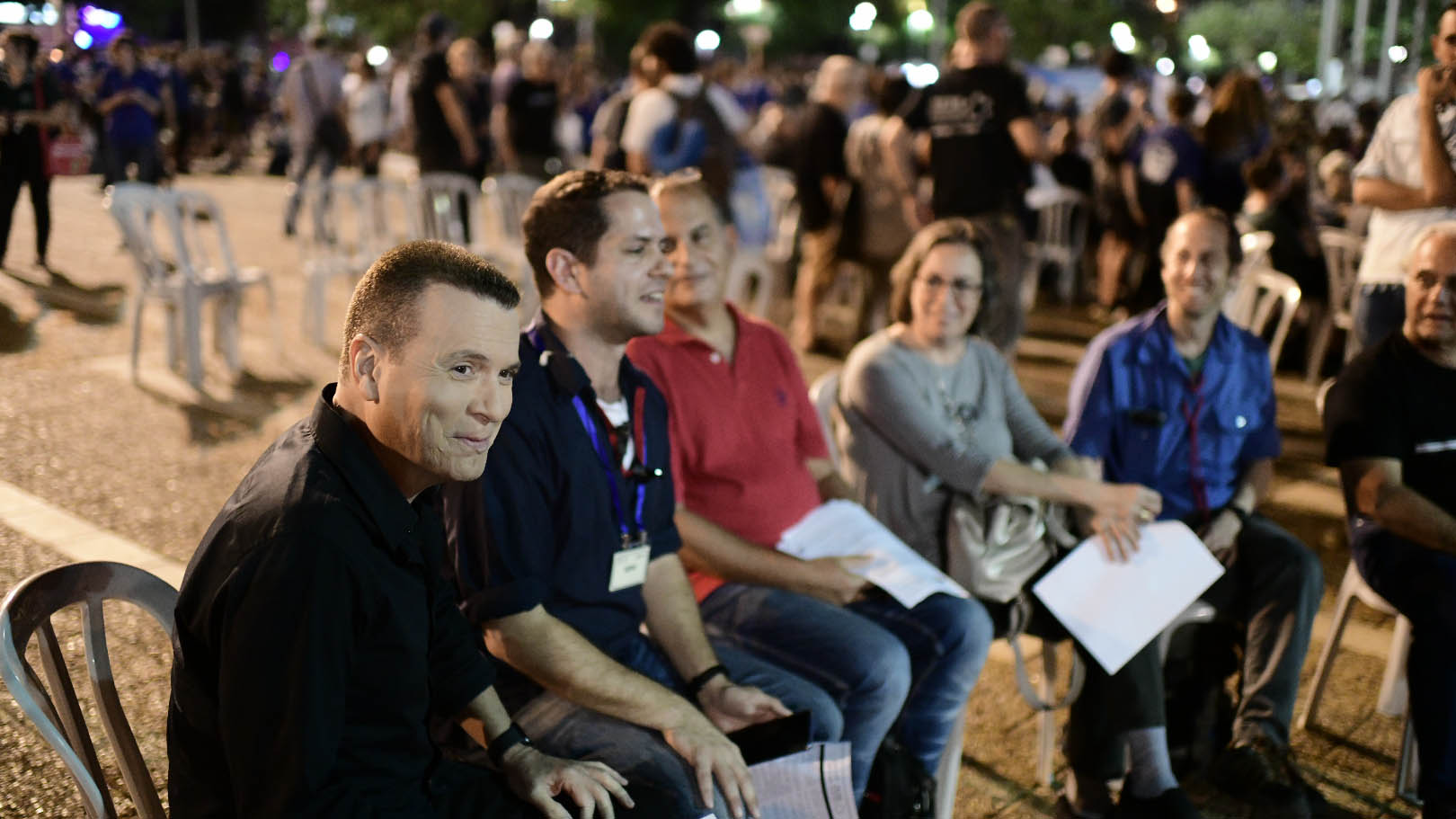
One of the main goals of the Israeli Assembly is to strengthen the Israeli public’s ability to disagree with one another on key issues without abandoning a shared commitment to a core set of principles and values. Organizers of the Assembly are of the view that a functioning democracy in Israel depends on its citizens’ willingness to participate in shaping the common ground, despite long standing quarrels and disagreements.
Indeed, in speaking to the severity of the rifts that exist in Israel’s divided public sphere, and the need for its sectors to compromise in order to bridge these gaps, Ultra-Orthodox educator Adina Bar Shalom warned: "If we can't understand that the dream of a Jewish state where everyone observes 613 commandments is unrealistic, we will lose the Jewish people. In ultra-Orthodox politics this view is not represented, they want all or nothing, and I'm afraid that we will remain with nothing."
Journalist Ayala Hasson, who reported for Channel 1 at the time of the assassination, said: "I asked the Prime Minister, two weeks before the assassination here in this square, if he was afraid that a Jew would try to harm him. He said that among his own people he was not afraid. I asked him this question not because I'm a prophet, but because I felt the hate at that time, how each side thought that the entire truth was on their side. I called Shoval, the district commander of the police, to ask how many people were at the square because we only trusted police estimates for attendance at public events. He answered and said, 'Wait a minute, Ayala, I'm just going down the steps with the Prime Minister.' I heard a shout and then the call cut out."
Hasson added: "There was not a single demonstration where I didn't see the anger, the hatred, the emotions and the use of the word traitor. We need to eradicate the word traitor from our discourse. It's a concrete threat to our democracy."
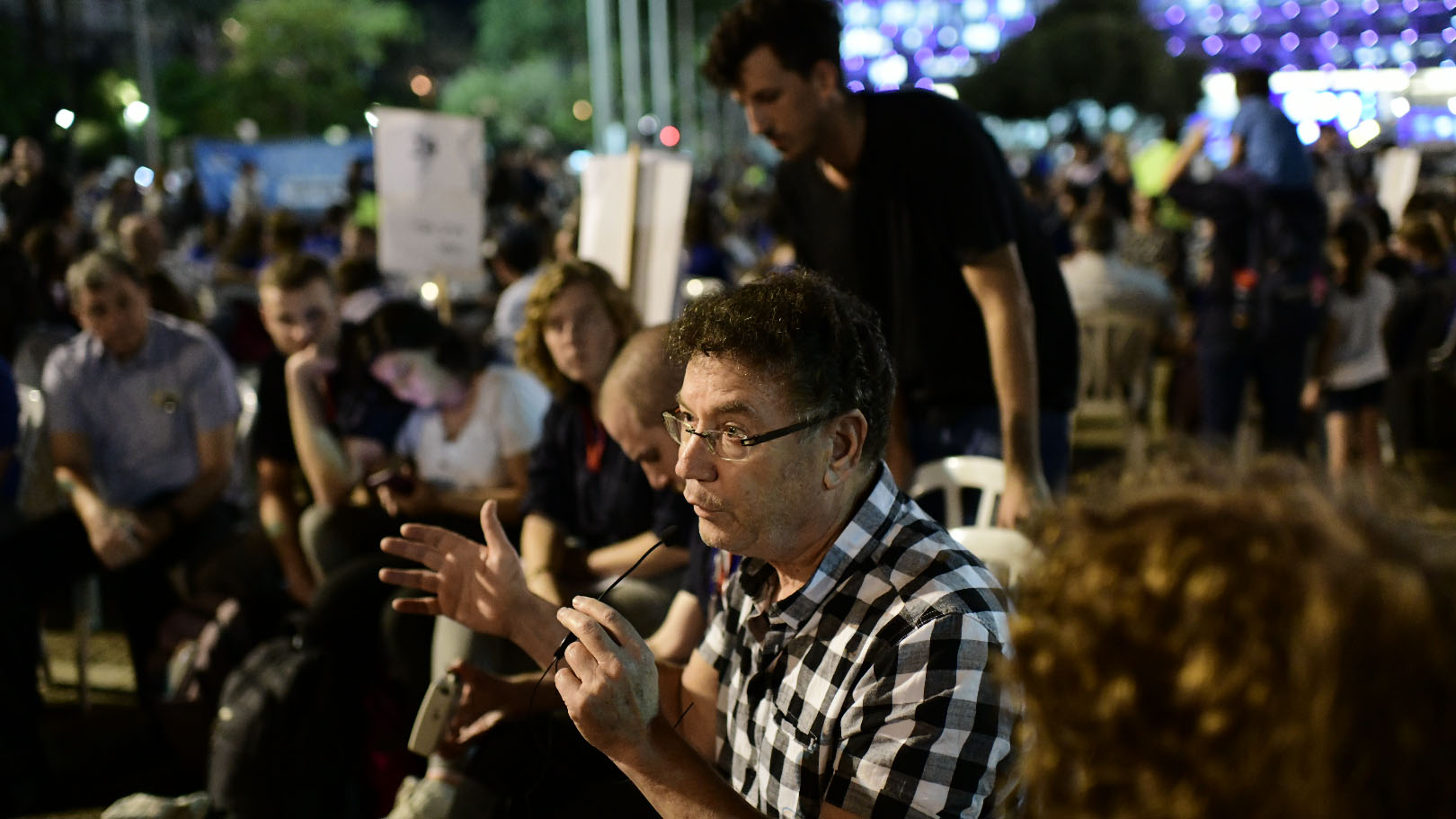
Journalist Gadi Sukenik, who covered the rally where Rabin’s assassination took place via live broadcast, said: "I was sent to cover the response of the head of the opposition at the time, Benjamin Netanyahu, to the assassination, two days after it occurred, to film his response. In his original response, he didn't mention the assassination at all, and ferociously attacked those who were blaming him and blaming the right wing and the rabbis for the incitement that led to the assassination. When he finished, I pointed out to him that he didn't mention the assassination at all. He was surprised, and we filmed his response again, and this time he began by condemning the assassination."
Dalia Rabin, CEO of the Rabin Center and daughter of Yitzhak Rabin, said to participants: "You are upholding his heritage. This is the heritage of Yitzhak Rabin: masses of young people from all over the country from all different backgrounds. Gathering here from across the country, from all different movements, in order to discuss burning issues in an attempt to reach an agreement, arguing like human beings."
The Remembering the Murder, Defending Democracy coalition which organized the event stated: "The memorial of the assassination must slowly become a day which is commemorated by every single Israeli. We are happy that the Assembly succeeds in creating alternative dialogue and a positive culture, and that is our power as citizens. We hope that the Assembly will spread to every community in Israel – we see tremendous interest."






